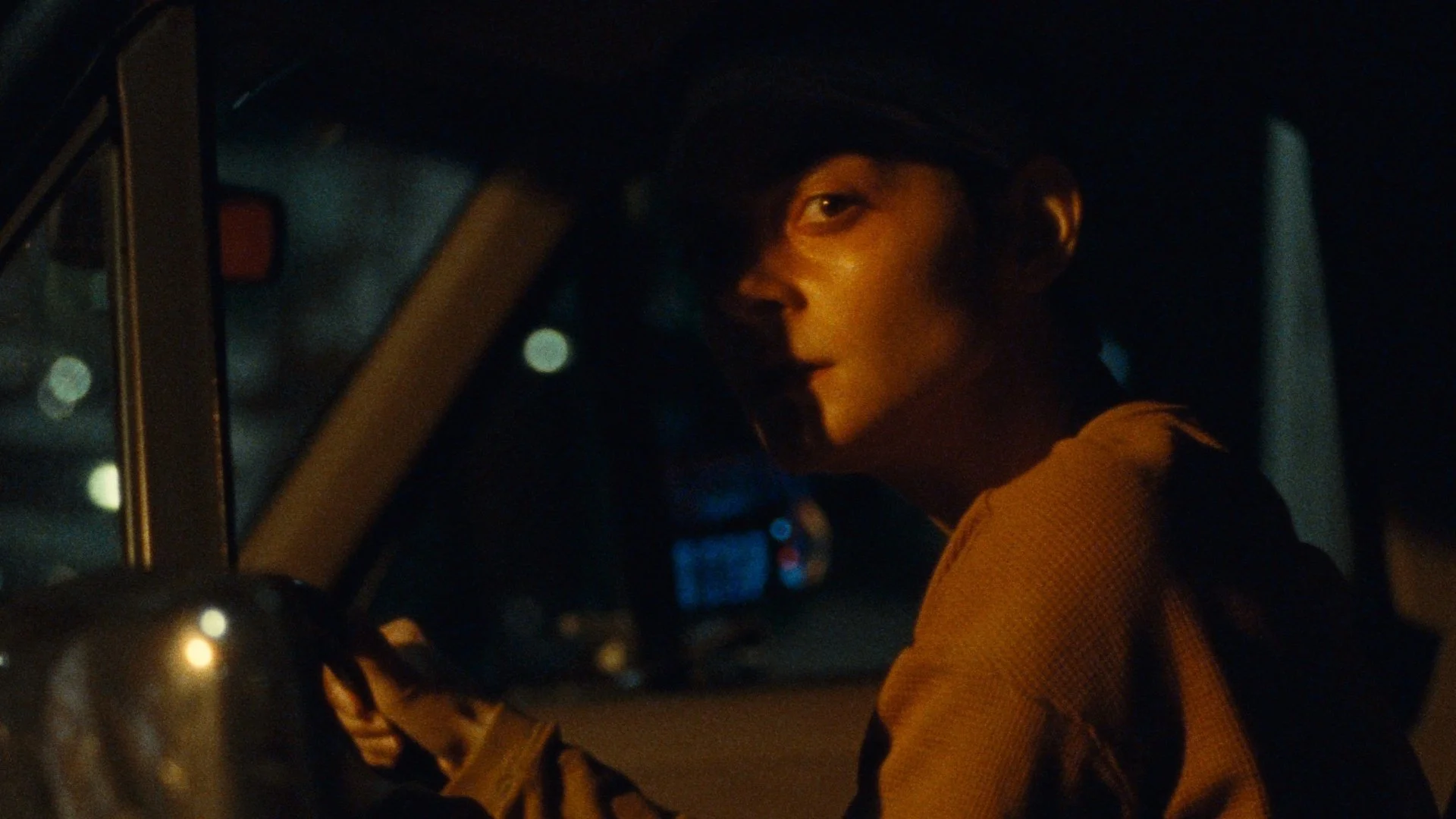'Gazer' Review: Jersey Set Neo-Noir Mystery Marks Impressive Debut For Ryan J. Sloan
Courtesy of Fantastic Fest
NR
Runtime: 1 Hr and 50 Minutes
Production Companies:
Distributor: Metrograph Pictures
Director: Ryan J. Sloan
Writers: Ariella Mastroianni, Ryan J. Sloan
Cast: Ariella Mastroianni, Marcia DeBonis, LeJon Woods, Emma Pearson, Annie Pisapia, Grant Schumacher, Jack Alberts
Release Date: September 27, 2024
Frankie (Ariella Mastroianni), a young mother based in Newark, struggles with dyschronometria, a rare brain condition that causes major time blindness. She loses a job at a gas station over gazing into a nearby apartment window, where a woman and a man are in a scuffle. Now she’s in dire need of funds to reunite with her daughter, who resides at the home of her late husband's combative mother. At a self-help group meeting for suicide survivors, Frankie encounters a woman, Claire (Renee Gagner), who she’d seen through the window. Claire offers Frankie a proposition: $3K for a simple break-in job at her brother's apartment to get a pair of car keys and drive to a rendezvous point. Shortly after, Frankie finds herself handling more than she bargained for as she becomes the epicenter of a sinister murder plot.

Gazer offers a new approach to the neo-noir genre by its heroine. Director Ryan J. Sloan offers a sensory experience through the depiction of Frankie's navigation of her daily life, highlighting her rare neurological condition in a classically-styled noir tale. Sloan frames Frankie with a compassionate lens that helps the viewer understand her condition while she struggles to stay aware and in tune. The mystery itself is conventional, with an elevated, slow-burning flow, but for a character such as Frankie, it's an engaging factor that propels the film.
Frankie has her demons to grapple with. As a widow with so many cards stacked against her – like her inabilities, trauma, and an asshole mother-in-law – it's hard not to feel empathy for her. Ariella Mastroianni (Sloan's partner, who also serves as co-writer) textures Frankie with humility; her big eyes encapsulate her pain and struggle, along with any dissociative notions once her past trauma involving her deceased spouse meddles with her attention span.
Gazer's production spanned several years, with shoot days happening amid the filmmaker's spare time whenever they could afford it. I'm impressed to see that the final result bears an eye-popping style that captures the look and feel of a ‘70s noir with a ‘90s mumblecore flair. In its favor, the time frame in which the film is set is ambiguous. Payphones and house phones are the main way that characters contact each other. Frankie uses tapes she plays on her Walkman to focus on her surroundings. For the narrative's backdrop, New Jersey – which is like cheating when it comes to finding a gritty location for a neo-noir – the state's mustiness is on full display. It's as a character says: "Only in fucking Jersey does shit like this happen." Furthermore, the film was shot on 16mm, which gave an additional grainy edge to the Jersey atmosphere. It all contributes to giving Gazer an underground indie sleaziness, like a rare VHS you’d pick up at a Kim's Video store.

As the second act progresses into thriller territory, Gazer departs into an artsy, dreamlike psychological horror area, set within Frankie's mind. It emanates horrifying imagery as Sloan and Mastroianni's story attempts a closer examination of Frankie's psyche. But those aspects are already well articulated by her navigation of the mystery and struggle to survive. Those moments disrupt the overall flow and are mismatched with the already enticing mystery. This film didn't need to be an hour and fifty minutes long. You can easily shave off about ten minutes for tightness and stronger pacing, and then we'd have a formidable debut that'd make me scream about it from the mountaintops.

As it stands, Gazer is a film that tests the groundwork and talents for Sloan and Mastroianni as storytellers. It’s an indie film expected to be rather rough around the edges, but showcases their ability in taking minimal resources and executing a visually arresting production with the potential for stronger ambitious stories in the future.

Rating: 3/5

